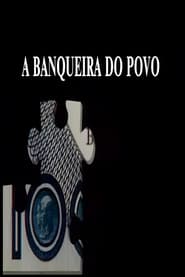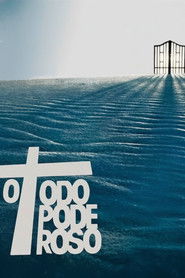Soap TV Series - Page 60
-
Legend of Ace
2016
Legend of Ace
2016
star 5The story follows 21st-century man Lin Wan Rong who is touring around Mount Tai when he accidentally falls into a dark space, transferring him to a parallel world, existing at the same time as the Song dynasty. In this world, many historical facts are in contrary to what is written in historical books. For instance, Xiang Yu defeated Liu Ban at the Battle of Gaixia and never committed suicide, as a result. While he’s described as smart and generous, he also enjoys joking and playing around as much as the next person. Using his economics wits, modern knowledge, and a whole layer of thick skin, he’s able to rise to become a lord of his own. However, with money and power, he inadvertently gets entangled in a power struggle between the royal members and somehow finds himself leading a troop to war. -
Um Anjo Caiu do Céu
2001
Um Anjo Caiu do Céu
2001
star 5.4João Medeiros is an internationally renowned photographer who suffers an attack in Prague, when he happens to photograph a Nazi leader who was in the middle of secret plans. In his last moments on Earth, his life is saved by the angel Rafael, sent by the highest heavenly bodies to offer him a new chance. The angel warns the photographer that he will only have six months to live to solve his problems with his family, neglected since he abandoned everything for the profession - including solving his situation with ex-wife Naná, who now lives with the profiteer Tarsus, and get along with his two daughters. Virginia has become a renowned stylist, but blames her father for the leg problem caused by an accident she suffered as a teenager and ended her ballet career. Duda, on the other hand, developed obsessive-compulsive disorder after her son Kiko disappeared years before, putting her marriage to Maurício in a long crisis. -
100 días para enamorarse
2019
star 2Laura and Antonia's lives will undergo a radical change when they decide to distance themselves from their respective partners on the same day and one of them signs a peculiar separation agreement. -
Jezabel
2019
Jezabel
2019
star 7.4The story of Phoenician princess Jezebel, an idol worshipper who marries King Ahab and uses her beauty and wickedness to try to impose on the Israelite people the worship of her pagan gods. -
The Fox Fairy Court
2016
The Fox Fairy Court
2016
star 5The son of an aristocratic family Wang Yuanfeng is not interested in wealth or romance but is obsessed with solving cases. After he accidentally saves the kind-hearted and naive fox spirit, Xiao Cui, she marries him to pay the debt of gratitude. Yuanfeng, however, stays away from her while Xiao Cui continuously makes trouble for him. When Yuan Feng later becomes county magistrate, she helps him with his investigations. -
Dime quién fue
2017
Dime quién fue
2017
star 2Laura returns 20 years later to the hotel where her mother died in strange circumstances, to seek revenge and make justice. -
099 Central
2002
-
Alguien Te Mira
2010
Alguien Te Mira
2010
star 6Alguien Te Mira is a Spanish-language telenovela produced by United States-based television network Telemundo. This Thriller mystery is a remake of Chilean telenovela Alguien te mira produced by TVN in 2007. Telemundo aired this series during the 2010-2011 season, from Monday to Friday over about 26 weeks. As with most of its other telenovelas, the network broadcasts English subtitles as closed captions on CC3. The series was filmed and set up in Chicago,although some scenes where created in studios in Miami. This show's jazzy, English-language recurring theme is You Still Love Me, performed by Ray Chang. -
A Banqueira do Povo
1993
A Banqueira do Povo
1993
-
Goenkale
1994
Goenkale
1994
Goenkale is a Basque soap-opera, produced by Pausoka Entertainment and ETB, which is broadcast every Monday and Tuesday on Basque Radio-television's first channel, ETB 1. Set up in an imaginary Basque seaside town, the title of the serial is the name of the main street in that town. First broadcast in 1994, almost 3,000 episodes have been made so far, and it is one of the most successful programmes of ETB 1. In the beginning every chapter lasted 30 minutes and they were broadcast from Monday to Friday. Then the Friday episode was removed. Since 2004 two one hour long episodes are broadcast every Monday and Tuesday. Then thirty-minute episodes are repeated in the afternoon everyday. -
The Return Of The Rockefeller
1973
star 8The big shot Albert returns after three years, reuniting with his family — his parents and his sister. And he gets in touch with some acquaintances, such as his old friend Vitório and a decadent high society woman. And once again Albert, the Rockefeller gets involved with millionaires and opportunists. -
Echo Beach
2008
Echo Beach
2008
star 5.6Echo Beach is a British teen drama series that aired on ITV in 2008. Set in the fictional Cornish coastal town of Polnarren, it ran for twelve weekly episodes from 10 January to 21 March 2008. The show was created by Tony Jordan and produced by Kudos for ITV. -
From Here to Eternity
1980
star 2.3From Here to Eternity was short-lived dramatic television series that aired in 1980. It was a spinoff of the successful 1979 miniseries of the same title. The series featured most of the cast members from the original miniseries, including William Devane and Kim Basinger. Barbara Hershey replaced Natalie Wood for the role of Karen Holmes. -
O Todo Poderoso
1979
O Todo Poderoso
1979
-
Dancin' Days
1978
Dancin' Days
1978
star 8.2A down-on-her-luck former inmate tries to reconnect with her daughter--to the objections of her sister who raised the girl, meets a millionaire, and transforms into a strong woman, returning to society at Dancin' Days nightclub's opening. -
Wanida
2010
Wanida
2010
Wanida, the strong-willed daughter of a loan shark, is thrust into an arranged marriage with Prajuab, a kind-hearted man from a prestigious family, after his brother’s unpaid debt leaves him as a reluctant replacement groom. Bound by obligation and mutual dislike, the two opposites enter a chaotic marriage that slowly challenges their prejudices and forces them to confront whether love can emerge from circumstance. -
Amar profundo
2021
-
Wildcat
1988
Wildcat
1988
star 6.4Cláudia returns to her rural hometown in order to take revenge for the murder of her family a long time ago. She believes that the Flores family committed the crime and tries to destroy them.... -
Toprak ile Fidan
2022



















